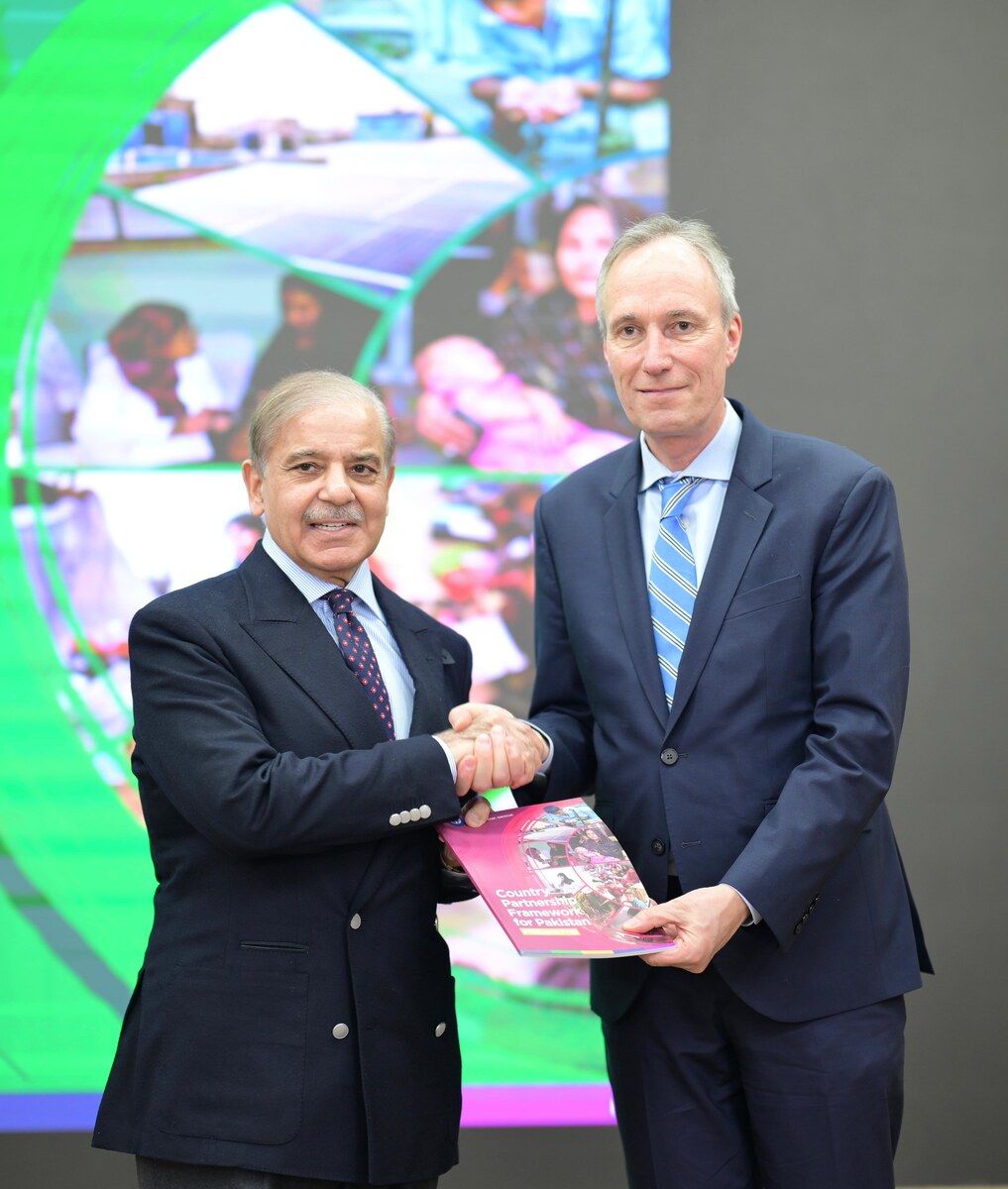ISLAMABAD: A day after presenting the $47 billion budget, Pakistan’s finance minister Miftah Ismail on Saturday said he had never seen such difficult times in the last 30 years and that the top priority of his government was to consolidate the economy through “tough measures.”
Ismail on Friday presented the Rs9.52 trillion ($47 billion) federal budget for the next fiscal year (FY 2022-23), earmarking more than 40 percent of the expenses for servicing local and foreign debts. Many believed it to be aimed at winning the approval of the International Monetary Fund (IMF) for the revival of the stalled $6 billion loan program.
The South Asian country has projected a budget deficit of Rs3.8 trillion ($18.6 billion), 4.9 percent of the gross domestic product (GDP).
“I have never seen such worst situation in 30 years. The situation at the international front was very challenging and the previous government has damaged the economy by doing nothing,” Ismail said at a post-budget press conference in Islamabad.
“We don’t have other options available apart from taking tough decisions. Our target for the next year is to consolidate [economy] and provide relief to people. We need to correct our economic administration to stop leakages, which is vital for the country to survive economically as a dignified nuclear state.”
Prime Minister Shehbaz Sharif’s government blames Pakistan’s economic woes on his predecessor Imran Khan, who was ousted by a no-trust vote and is now fomenting a campaign to press for early elections, and adding to the political and economic instability in the country.
Analysts, however, point to decades of poor economic management by successive governments and military rulers, who failed to tackle endemic corruption and widespread tax avoidance.
Ismail said Pakistan’s economy could not be run like a “business as usual.”
“We are suffering a loss of Rs1.1 trillion ($5.4 billion) and by adding the circular debt, it goes up to Rs1.6 trillion ($7.8 billion),” he said. “I am not being an alarmist, but Pakistan’s economy cannot bear it. Rs1.6 trillion is way more than our defense budget and the running cost of civil administration.”
About the relief measures, the finance minister stressed the need to facilitate the underprivileged classes to avoid a “Sri Lanka-like situation.”
“You (participants of press conference) and those in the federal cabinet are privileged, but the common man is not as privileged and if you will drown them and make a Sri Lanka-like situation, the nation and the history will never forgive you.”
Speaking about the gas subsidy, Ismail said a subsidy of Rs400 billion ($1.9 billion) was being doled out on gas alone this fiscal year, mainly due to the purchase of costly liquefied natural gas (LNG). “You are buying gas for $20 and selling it for $2. Where will the country bring the money from?”
The finance minister said the government had imposed additional taxes on the affluent people and it was trying to cut tax rates on personal income.
Commenting on the increasing prices of palm oil in the international market, he said a package of Rs20 billion ($98 million) had been announced to promote the cultivation of oil seeds in the country to cut the edible oil import bill.
Ismail informed PM Sharif had spoken to Indonesia’s President Joko Widodo for a smooth supply of palm oil to Pakistan. He, however, said the prices of the commodity would not come down this year in the international market.
Speaking at the press conference, State Minister for Finance Aisha Ghaus Pasha said she was “frightened by the most difficult economic situation.”
“Our aim is to ensure economic stability and take the country back toward the track of growth,” Pasha said. “We have worked hard to put minimum burden on a common man.”
Pakistan, home to 220 million people, is currently witnessing a widening current account deficit, foreign exchange reserves deplete to $9.2 billion — barely enough for less than 45 days of imports — and double-digit inflation.
The country is making desperate attempts to clear a seventh review to revive the $6 billion loan program it secured from the IMF in 2019. Successful completion of the review will see the disbursement of around $1 billion to Islamabad, apart from the previous disbursements amounting to $3 billion.
The latest tranche will help the South Asian country stave off its balance-of-payment crisis and help unlock funding from other external sources as well.


















